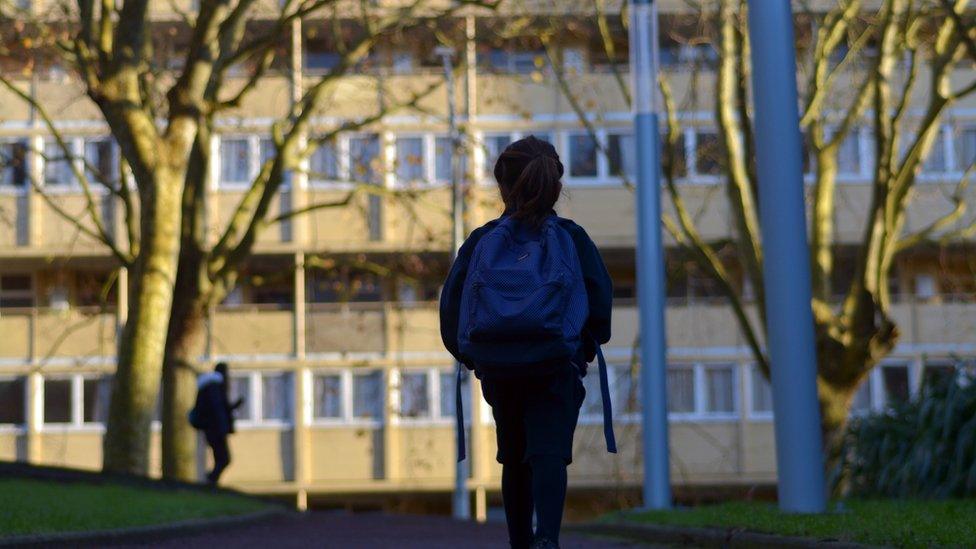Universal Credit: Benefit increase only 'temporary', says Raab
- Published

There are warnings more children could be plunged into poverty
A decision on whether the £20 weekly rise in Universal Credit will be kept in place is unlikely before March's Budget, a top minister has indicated.
Campaigners say the uplift, worth more than £1,000 a year, has been a lifeline for the vulnerable during the pandemic.
Labour will use a Commons debate on Monday to add pressure on ministers to agree now to extend it beyond 31 March.
But Dominic Raab told the BBC it was a "temporary measure" and the Budget would spell out support "in the round".
In an interview with Andrew Marr, the foreign secretary confirmed that Conservative MPs would be told to abstain in Monday's debate, meaning Labour's "opposition day" motion will be approved.
While the motion will not be binding on ministers and won't change policy, the BBC's Ben Wright said not opposing it represented an attempt by the government to "neutralise" the issue for the time being.
It showed, he added, how concerned ministers were about the prospect of a rebellion by Tory MPs - many of whom want an end to the uncertainty over the issue - if they had been asked to vote against it.
The standard Universal Credit allowance, which is claimed by more than 5.5 million households, was increased by £20 a week in April 2020 as part of Chancellor Rishi Sunak's early Covid economic response.
While it was designed as a temporary response to help those unable to work or struggling due to the lockdown, opposition parties and charities say failing to extend will cause real hardship for hundreds of thousands of people.
Hardship warning
The Joseph Rowntree Foundation has suggested about 16 million people will be directly affected, with millions of households facing an income loss equivalent to £1,040 a year.
The organisation has warned 500,000 more people will be driven into poverty, including 200,000 children, while a further 500,000 of those already in poverty will find themselves in even worse hardship.
Its director Helen Barnard said a decision could not be delayed any longer.
"The chancellor has said the economy is going to get worse before it gets better and our evidence shows it is those with the least who are often suffering the most," she said.
"No one can seriously argue that cutting support for those on the lowest incomes in April will do anything other than weaken our already fragile economy."
Asked whether the government should act now, Mr Raab said Monday's debate was a "political" move by the opposition and not about the government's overall financial support during the pandemic.
He promised to "look at everything in the round" to make sure support for the most vulnerable was available.
"Obviously in March there will be a Budget where again that holistic approach can be taken by the chancellor, but we've put that support in place to make sure that the most vulnerable communities can be protected at this very difficult time," he told Andrew Marr.
The government says it has injected an extra £7bn into the welfare system during the pandemic, including boosting Working Tax Credits by more than £1,000 a year for a 12-month period.
Labour has urged the government to "see sense" on Universal Credit, saying that it would be both morally and economically wrong to "take £1,000 a year from Britain's families" at the peak of the unemployment crisis.